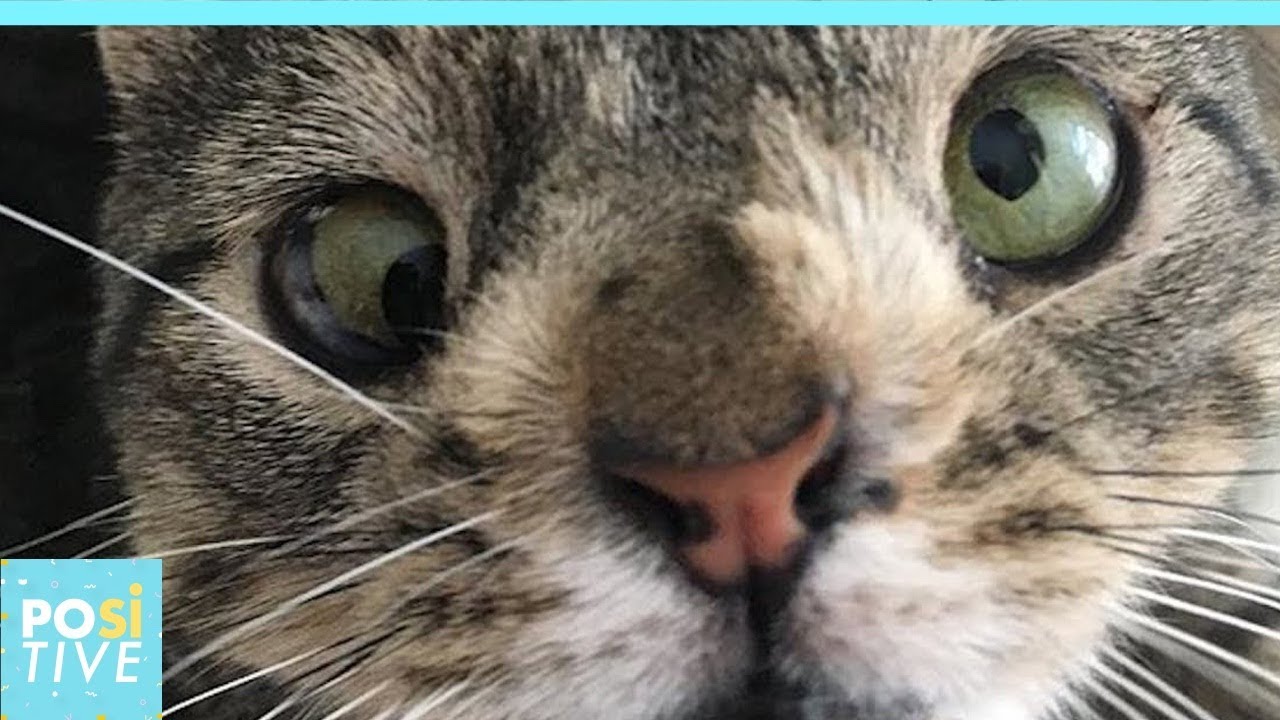The term “cat with Down syndrome” is often used to describe felines with unique facial features or developmental disabilities. However, cats cannot have Down syndrome because they lack the specific chromosomal structure that causes the condition in humans. That said, some cats do exhibit special needs and genetic disorders that may resemble certain traits. Understanding these conditions and how to care for such cats can make a world of difference in their lives.
This article will debunk myths, discuss the possible conditions affecting cats, and provide essential care tips for special needs felines.
Why Cats Cannot Have Down Syndrome
- Chromosomal Differences – Down syndrome in humans is caused by an extra copy of chromosome 21. Cats have only 19 pairs of chromosomes, making it impossible for them to develop the condition.
- Similar-Looking Conditions – Certain genetic abnormalities or neurological disorders may give the appearance of Down syndrome-like features in cats.
- Common Misconceptions – Many people assume that unique facial structures, cognitive challenges, or physical abnormalities indicate Down syndrome, but other medical explanations exist.
Conditions Often Mistaken for Down Syndrome in Cats
Cats with unique facial structures, motor skill difficulties, or behavioral differences may have one of the following conditions:
- Cerebellar Hypoplasia – A neurological disorder affecting coordination and balance.
- Feline Dwarfism – Genetic mutations causing stunted growth and abnormal physical features.
- Hydrocephalus – A condition leading to an enlarged skull due to fluid buildup in the brain.
- Facial Deformities – Birth defects or genetic conditions that result in unusual facial features.
- Trauma-Related Injuries – Brain injuries that affect behavior and motor function.
Recognizing Special Needs Cats
If your cat exhibits unusual features or behaviors, a veterinary diagnosis is essential. Some signs that your cat may have a genetic disorder include:
- Unusual facial symmetry or wide-set eyes
- Poor coordination or difficulty walking
- Slow learning ability or cognitive challenges
- Abnormal body proportions or small stature
- Sensory impairments, such as vision or hearing loss
Caring for a Special Needs Cat
A cat with special needs requires dedicated care and patience. Here are some key aspects of their care:
- Veterinary Support – Regular check-ups to manage health conditions and monitor progress.
- Safe Environment – Removing hazards that could lead to injuries, especially if your cat has mobility issues.
- Nutritional Considerations – Providing a balanced diet tailored to any special dietary needs.
- Enrichment Activities – Stimulating toys and activities to support cognitive and physical health.
- Compassion and Patience – Understanding that they may need extra time to learn and adapt to new environments.
Can Special Needs Cats Live a Normal Life?
Yes! With the right care, cats with genetic conditions can lead happy and fulfilling lives. Many special needs cats develop strong bonds with their owners and show resilience in adapting to their circumstances. Providing them with love, care, and proper medical attention can help them thrive.
Conclusion
While the idea of a “cat with Down syndrome” is a misconception, some felines do have genetic conditions that require special care. Understanding the differences, recognizing symptoms, and providing a nurturing environment can greatly improve their quality of life. If you suspect your cat has a genetic or neurological condition, consulting a veterinarian is crucial. With proper care, special needs cats can live joyful and fulfilling lives, bringing love and companionship to their owners.
FAQs
Can cats be born with Down syndrome?
No, cats cannot have Down syndrome because they do not have chromosome 21, which causes the condition in humans.
Why does my cat look like it has Down syndrome?
Some genetic conditions, such as cerebellar hypoplasia or feline dwarfism, can cause unique facial structures and developmental differences.
How do I care for a special needs cat?
Special needs cats require a safe environment, proper nutrition, regular vet visits, and lots of love and patience.
Are special needs cats in pain?
Not necessarily. Many conditions are not painful but may require accommodations for mobility and comfort.
Can special needs cats live a long life?
Yes! With proper care, special needs cats can live as long as healthy cats, depending on their specific condition.
Should I adopt a cat with special needs?
Absolutely! These cats can be wonderful companions and often form deep bonds with their owners.
For more feline care tips and expert advice, visit MeowMasters.
